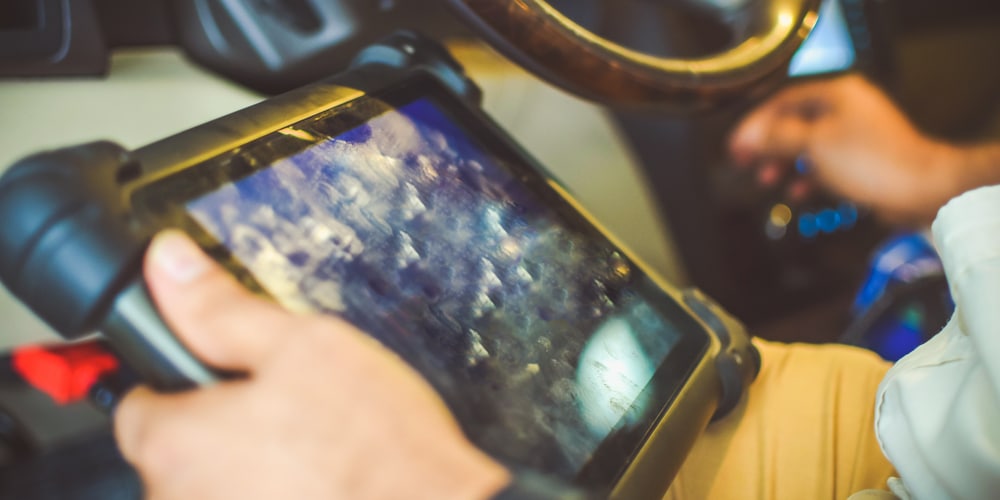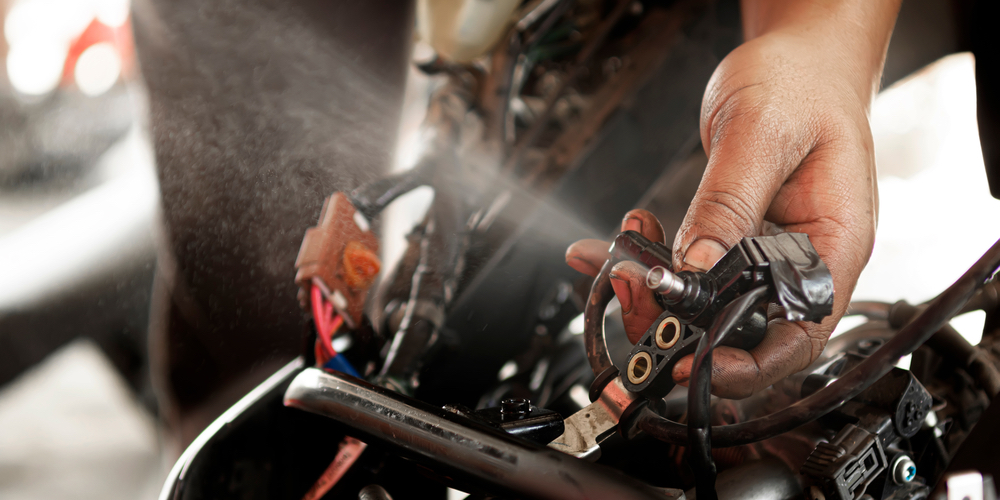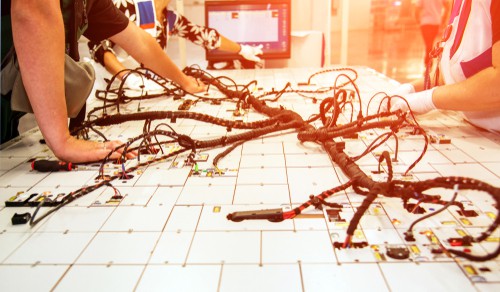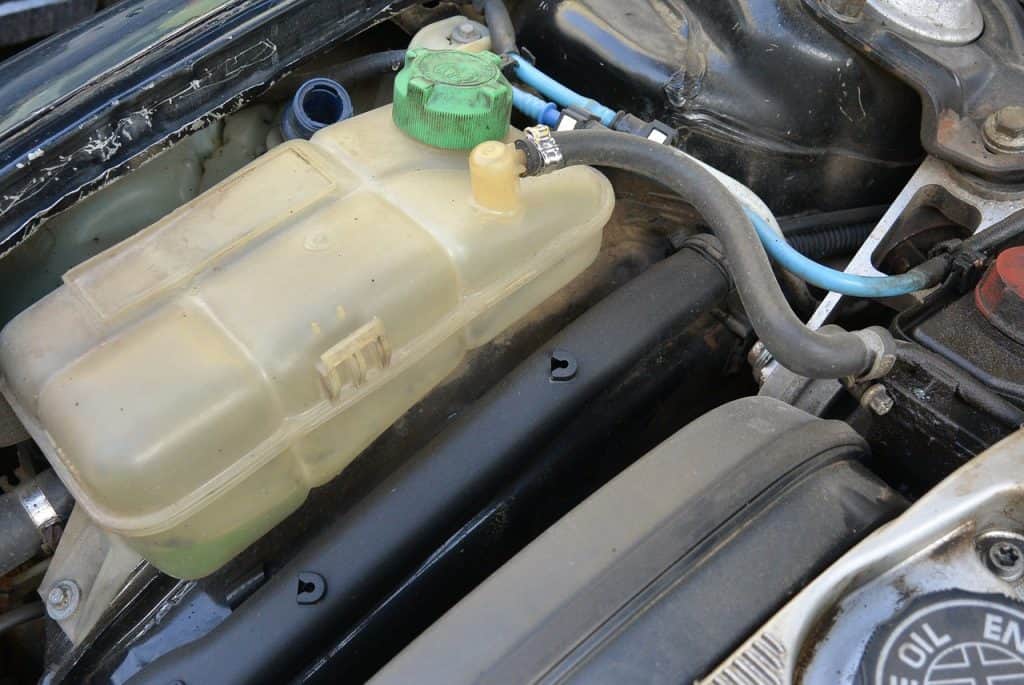Imagine cruising down the highway, music blasting, when suddenly your car shuts off. Panic sets in as you coast to the shoulder.
You turn the key, and miraculously, it roars back to life. What just happened?

A car that turns off while driving but restarts could be experiencing issues with its fuel system, electrical components, or engine sensors. Common culprits include a faulty fuel pump, dying battery, or malfunctioning alternator. Don’t ignore this warning sign – it’s your vehicle’s cry for help.
While it might be tempting to brush off this automotive hiccup, continuing to drive with this issue could leave you stranded in a less forgiving situation.
Let’s dig into the possible causes and solutions, so you can get your four-wheeled friend back to reliable running condition.
Key Takeaways
- A car shutting off while driving can be caused by fuel, electrical, or sensor issues
- Immediate diagnosis and repair are crucial to prevent dangerous driving situations
- Regular maintenance can help prevent unexpected engine performance problems and keep your car running smoothly
Common Culprits for Sudden Engine Shutdown
When your car decides to take an unexpected nap while you’re cruising down the road, it can be quite the hair-raising experience. Let’s pop the hood and take a look at some of the usual suspects behind this automotive narcolepsy.
Ignition System Failures
Your ignition system is like the morning coffee for your car – without it, things just won’t start up.
Faulty spark plugs can cause your engine to sputter and die faster than you can say “roadside assistance.”
Worn-out ignition coils might also be playing hide and seek with your engine’s spark. If these components decide to take a break, your car might just follow suit.
Don’t forget about that pesky ignition switch. If it’s feeling lazy, it might cut power to your engine mid-drive, leaving you scratching your head (and possibly pushing your car).
Fuel System Mishaps

No fuel, no fun – that’s the motto of your engine. A faulty fuel pump can turn your ride into a very expensive paperweight. If it’s not delivering the goods, your engine will throw in the towel.
Clogged fuel injectors are like having a kinked garden hose – the flow just isn’t there. Your engine needs a steady diet of fuel, and these little nozzles are responsible for serving it up.
And let’s not forget about the fuel filter. If it’s more clogged than your uncle’s arteries after Thanksgiving dinner, your engine might just call it quits.
Engine Overheating Woes
When your engine gets too hot under the collar, it might decide to take a breather.
A malfunctioning thermostat can cause your engine to overheat faster than asphalt on a summer day.
A leaky radiator or low coolant levels can also lead to an impromptu engine shutdown. It’s like trying to run a marathon in the Sahara without water – not a good idea.
Don’t overlook your water pump either. If it’s not circulating coolant properly, your engine might just decide to take a siesta to cool off.
Electrical Component Surprises

Your car’s electrical system is like a complex web of nerves. When one sensor goes haywire, it can throw the whole system into chaos.
The camshaft position sensor, for instance, is like your engine’s personal timekeeper. If it starts giving faulty readings, your engine might just throw up its hands and quit.
The crankshaft position sensor is another potential troublemaker. It’s responsible for telling your engine when to fire those spark plugs. If it’s off its game, your engine might just decide to take a timeout.
And let’s not forget about the battery and alternator duo. If they’re not playing nice, your car might run out of juice faster than your phone at a music festival.
Power Supply Puzzles: Battery and Alternator Issues
Your car’s electrical system is like a finicky toddler – it needs constant attention and can throw a tantrum at any moment. Let’s dive into the two main culprits that might be causing your ride to throw an electrical fit.
Battery Blips
Is your car playing dead possum on you? A dead battery could be the sneaky culprit. Your trusty battery might be on its last legs if it’s more than 3-5 years old.
Check for corrosion on the terminals – it looks like a crusty, white-green monster trying to eat your battery. Clean it off with a wire brush and some baking soda solution. Voila! You’re a battery whisperer.
If your battery’s voltage drops below 12.6 volts, it’s time for a juice-up or a replacement. Don’t wait until you’re stranded in the middle of nowhere with a car that won’t start!
Alternator Anomalies
Your alternator is like the overworked parent of your car’s electrical system. When it starts slacking, all hell breaks loose.
A failing alternator can cause your car to shut off while driving and then magically restart.
Listen for a high-pitched whine under the hood – that’s your alternator crying for help. Check your dashboard lights. If they’re dimming or flickering like a haunted house, your alternator might be on its way out.
A quick test: Turn on your headlights while idling. If they get brighter when you rev the engine, your alternator is probably fine. If not, it’s time to visit your friendly neighborhood mechanic.
Remember, a bad alternator can drain your battery faster than a teenager drains their phone battery. So don’t ignore these warning signs, or you might find yourself pushing your car home!
Cooling System Conundrums and Overheating Tales
Your car’s cooling system can be a real drama queen sometimes. It keeps your engine from throwing a temperature tantrum, but when things go awry, you might find yourself in hot water – literally!
Coolant Level

Ever had that sinking feeling when you pop the hood and see your coolant reservoir looking thirstier than you after a long road trip?
Low coolant levels can turn your peaceful drive into a steamy nightmare.
Keep an eye on that little plastic tank – it’s your early warning system. If it’s running low, you might have a leak sneakier than a cat burglar. Check your driveway for telltale puddles.
Pro tip: Never open a hot radiator cap unless you fancy a face full of steam facial. Wait for it to cool down, or you’ll be doing your best teapot impression.
Radiator and Water Pump Narratives
Your radiator and water pump are like the dynamic duo of coolness. When they’re on the fritz, your engine might start overheating but then going back to normal. It’s like your car is playing a cruel game of hot and cold.
A clogged radiator is about as useful as a chocolate teapot. It can’t cool your engine properly, leading to temperature spikes. And if your water pump decides to retire early? Well, your coolant won’t be going anywhere fast.
Listen for unusual noises – a squealing water pump is its way of crying for help. And if your temperature gauge is doing the cha-cha between hot and normal, it might be time for a coolant system check-up.
Fuel Fiascos: From Pump to Filter
Fuel system troubles can leave you stranded on the roadside faster than you can say “empty tank.” Let’s explore the main culprits behind your car’s sudden shutdowns and miraculous restarts.
Fuel Pump Perplexities
Your fuel pump is the unsung hero of your car’s performance. When it starts to fail, you might notice your vehicle shutting off while driving. It’s like your car is taking an unscheduled nap!
Signs of a failing pump include sputtering engines, loss of power on acceleration, and that dreaded stall-and-restart dance. Your fuel pressure might drop, leaving your engine gasping for gas like a fish out of water.
Don’t ignore these warning signs, folks. A healthy pump keeps your fuel delivery system happy, and a happy system means a happy driver. Remember, prevention is cheaper than a tow truck!
Filtering Through Fuel Filter Facts
Now, let’s talk about that often-forgotten component: the fuel filter. This little guy works overtime to keep nasty contaminants out of your engine. But when it gets clogged, it’s like trying to sip a thick milkshake through a coffee stirrer.
A clogged fuel filter can cause your car to stall unexpectedly. You might find yourself cruising along one minute and sitting idle the next. The good news? It’s usually a quick and easy fix.
Regular filter changes are key. Think of it as giving your car a spa day – it’ll thank you with smooth performance and fewer roadside headaches. Keep an eye on your owner’s manual for recommended change intervals, and your car will keep purring along.
Diagnosing the Dilemma: Handy Tips for Troubleshooting
When your car decides to take an unexpected nap during your drive, it’s time to put on your detective hat. Let’s explore how to crack this automotive mystery using some nifty tools and techniques.
Understanding Trouble Codes
Ever wished your car could talk? Well, it can! Through trouble codes, that is. These pesky little codes are your vehicle’s way of saying, “Hey, something’s not quite right here!”
Your car’s Engine Control Unit (ECU) is like a gossipy neighbor, always ready to spill the beans on what’s going wrong.
Common codes like P0300 or P0301 might pop up, hinting at issues with your engine’s performance.
But don’t worry, you don’t need to be fluent in car-speak to understand these codes. A quick internet search can help you decipher what your four-wheeled friend is trying to tell you.
Probing with an OBD2 Scanner
Now, let’s talk about your new best friend: the OBD2 scanner. This gadget is like a lie detector for your car, revealing all its dirty little secrets.
To use it, simply plug it into your car’s OBD2 port. It’s usually hiding under the dashboard, feeling shy.
Once connected, this magical device will start chatting with your car’s Engine Control Module.
The scanner will display those trouble codes we talked about earlier. It might also show you real-time data about your engine’s performance.
This information is gold when trying to figure out why your car keeps nodding off mid-journey.
Remember, faulty electrical connections can cause all sorts of mischief. Your OBD2 scanner might just help you catch these electrical gremlins red-handed!
Frequently Asked Questions
Cars shutting off unexpectedly can be a real head-scratcher. Let’s dive into some common questions about this pesky problem and shed some light on what might be causing your ride to take impromptu naps.
What sensor could be responsible for my car shutting off unexpectedly on the road?
Your car’s crankshaft position sensor could be the culprit here. This little gadget tells your engine’s computer when to fire the spark plugs and inject fuel.
If it’s on the fritz, your car might decide to take a siesta mid-drive.
Another suspect is the mass airflow sensor, which measures the amount of air entering your engine.
Experiencing sudden car shutdowns without any warning lights? What’s likely going on?
You might be dealing with a faulty fuel pump. This sneaky issue can cause your car to stall without triggering any warning lights.
It’s like your car’s getting a case of the hiccups – one minute it’s running fine, the next it’s sputtering to a stop.
A clogged fuel filter could also be playing hide-and-seek with your car’s performance.
My car has a knack for playing dead and then coming back to life; what should I do when it shuts off mid-drive?
First things first, don’t panic! Safely steer your car to the side of the road.
Try turning the key or pushing the start button – if it fires up, you might have a loose battery connection or alternator issue.
If it won’t start, it’s time to call for backup. Remember, safety first – don’t try to be a roadside mechanic if you’re not comfortable with it.
Should my car decide to take a nap while driving, only to wake up again, what could be the culprit?
Your car might be suffering from a case of fuel delivery system blues. This could be due to a faulty fuel pump, clogged fuel filter, or even fuel injector issues.
It’s like your car’s digestive system is acting up – it’s not getting the fuel it needs when it needs it.
A trip to the mechanic might be in order to sort out this finicky fuel feast.
Why might my vehicle spontaneously decide to shut down at a stop or when slowing down?
This could be a sign of a faulty idle air control valve. When you slow down or stop, this valve helps maintain the right amount of air for your engine to idle smoothly.
If it’s not working properly, your car might stall when you’re not giving it gas.
Could the battery light turning on give any clues as to why my car shuts off while driving?
Absolutely! If your battery light comes on before your car shuts off, you might be dealing with an alternator problem.
The alternator keeps your battery charged while you’re driving. If it’s not doing its job, your car will run on battery power until it conks out.
It’s like your car’s running a marathon without refueling – eventually, it’s going to hit the wall.
